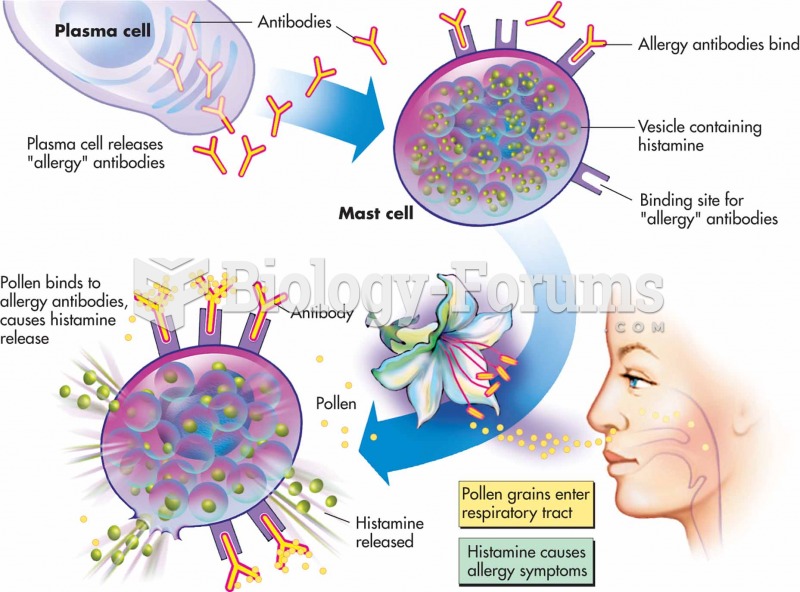Answer to Question 1
1, 3, 4
Rationale 1: Allergic rhinitis is a common disorder affecting millions of people annually. Symptoms resemble those of the common cold: tearing eyes, sneezing, nasal congestion, postnasal drip, and itching of the throat.
Rationale 2:Wheezing is incorrect because it is not a symptom of allergic rhinitis.
Rationale 3: Allergic rhinitis is a common disorder affecting millions of people annually. Symptoms resemble those of the common cold: tearing eyes, sneezing, nasal congestion, postnasal drip, and itching of the throat.
Rationale 4: Allergic rhinitis is a common disorder affecting millions of people annually. Symptoms resemble those of the common cold: tearing eyes, sneezing, nasal congestion, postnasal drip, and itching of the throat.
Rationale 5:Urticaria is incorrect because it is not a symptom of allergic rhinitis.
Global Rationale: Allergic rhinitis is a common disorder affecting millions of people annually. Symptoms resemble those of the common cold: tearing eyes, sneezing, nasal congestion, postnasal drip, and itching of the throat. Wheezing is incorrect because it is not a symptom of allergic rhinitis. Urticaria is incorrect because it is not a symptom of allergic rhinitis.
Answer to Question 2
2
Rationale 1:A dry powder inhaler (DPI) is a small device that is activated by the process of inhalation to deliver a fine powder directly to the bronchial tree. Turbuhalers and rotahalers are types of DPIs.
Rationale 2: A hypodermic syringe is a piston syringe that is fitted with a hypodermic needle for giving injections.
Rationale 3:A nebulizer is a small machine that vaporizes a liquid drug into a fine mist that can be inhaled, often using a facemask.
Rationale 4:A metered-dose inhaler (MDIs) uses a propellant to deliver a measured dose of drugs to the lungs during each breath. The patient times the inhalation to the puffs of drug emitted from the MDI.
Global Rationale: A hypodermic syringe is a piston syringe that is fitted with a hypodermic needle for giving injections. A dry powder inhaler (DPI) is a small device that is activated by the process of inhalation to deliver a fine powder directly to the bronchial tree. Turbuhalers and rotahalers are types of DPIs. A nebulizer is a small machine that vaporizes a liquid drug into a fine mist that can be inhaled, often using a facemask. A metered-dose inhaler (MDI) uses a propellant to deliver a measured dose of drugs to the lungs during each breath. The patient times the inhalation to the puffs of drug emitted from the MDI.







